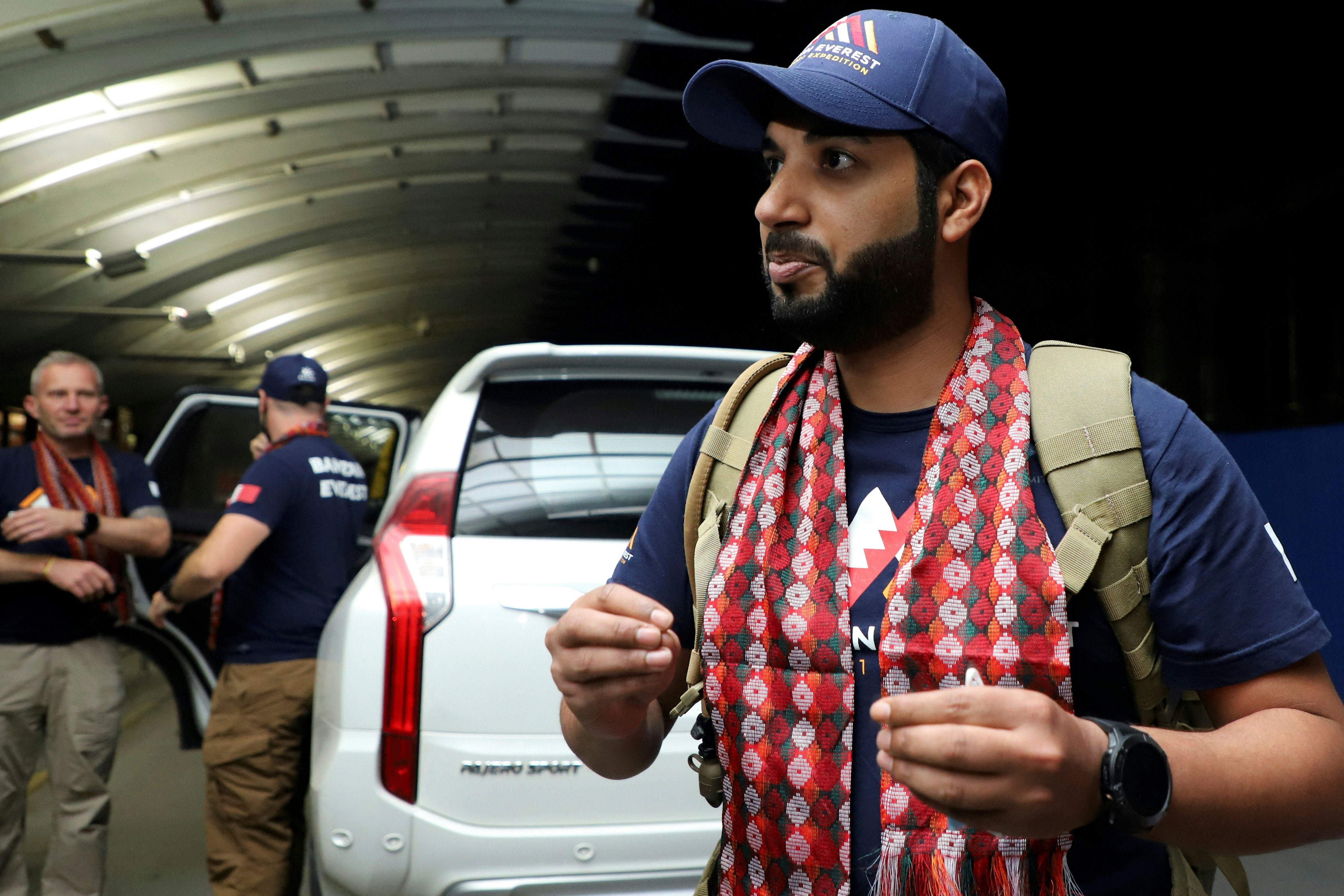Probe into how Bahraini sheikh entered Nepal with 2,000 doses of Covid vaccine for Everest trip
Royal delegation from Bahrain wanted to distribute vaccine among local villagers ‘as a gift’

Your support helps us to tell the story
From reproductive rights to climate change to Big Tech, The Independent is on the ground when the story is developing. Whether it's investigating the financials of Elon Musk's pro-Trump PAC or producing our latest documentary, 'The A Word', which shines a light on the American women fighting for reproductive rights, we know how important it is to parse out the facts from the messaging.
At such a critical moment in US history, we need reporters on the ground. Your donation allows us to keep sending journalists to speak to both sides of the story.
The Independent is trusted by Americans across the entire political spectrum. And unlike many other quality news outlets, we choose not to lock Americans out of our reporting and analysis with paywalls. We believe quality journalism should be available to everyone, paid for by those who can afford it.
Your support makes all the difference.The Nepal drug authorities are investigating how a 16-member mountaineering team including Bahraini Sheikh Mohamed Hamad Mohamed Al Khalifa entered the country on Monday with 2,000 unauthorised doses of Covid vaccine.
The royal delegation traveled to Nepal for an expedition to climb Mount Everest, having last year successfully summited the 8,156m peak of Manaslu in the Gorkha district.
And according to a statement by the Bahraini embassy, the expedition wanted to hand out the 2,000 doses of AstraZeneca vaccine to villagers in Gorkha “as a gift”.
However, the Nepal drug regulatory authorities were not informed of the import of Oxford-AstraZeneca vaccines with the expedition team, a necessary step for bringing any kind of medicine into the country.
Bharat Bhattarai, director-general of the Department of Drug Administration in Nepal, told the Kathmandu Post: “We have deployed a team of drug inspectors to investigate how the vaccines were brought into the country without any prior approval. We did not know that vaccines were being imported from Bahrain.”
The Bahraini authorities say they received approval to bring the vaccines into the country from the Nepalese Embassy in Bahrain prior to the expedition.
Earlier the organisers of the expedition, Seven Summit Treks, confirmed the arrival of the sheikh and the rest of the team in Nepal. Mingma Sherpa, the company’s chairperson, said the group comprised of “13 Bahraini nationals and three British nationals” and that they would attempt to summit Everest “this spring”.
Read more:
In a post on Instagram, the company said: “Our heroes will leave to climb Mt Everest. It’s a 79-day mission before they head back home. Before that, they will summit the Bahrain Royal Peaks (in Gorkha) that have been named after our beloved kingdom. And while they are climbing, they will pass by a village with 1,000 citizens living by the Bahrain Royal Peaks and get them all vaccinated.”
Bhattarai told reporters that his office is coordinating with the Ministry of Foreign Affairs and Ministry of Health and Population regarding the import of 2,000 doses of Covid vaccine.
According to Bhattarai, for the import of any medicine or vaccine to Nepal “relevant documents, as well as storage guarantee of cold chain maintenance and expiry dates, must be provided” to the drug regulator.
After landing on Monday, the team had moved to a hotel where they are supposed to spend seven days in quarantine in line with the Nepal government’s rules, Sherpa told news reporters.
It remained unclear which authority the Bahrain team was coordinating with to administer the vaccine to the villagers.
Nepal started its vaccination drive on 27 January and has been prioritising high-risk groups. The country has had more than 275,000 confirmed Covid cases and over 3,000 deaths.
According to the Kathmandu Post, the Nepal government was unable to procure sufficient Covid vaccines and hence sought applications from private firms to import the vaccine. An anonymous official at the Health Ministry told the Post: “Even if the vaccine has been brought in good faith, all legal and technical procedures must be followed.”
Some officials suggested that the vaccine import controversy arose due to miscommunication, and that the Nepali embassy in Bahrain coordinated only with the Ministry of Foreign Affairs in Nepal and not the relevant health authorities. Officials at the foreign ministry, meanwhile, insisted the Bahraini request had been forwarded to the Health Ministry.
This article was amended on 18 March 2021 to include comment from the Bahraini government and to remove references to Sheikh Al Khalifa being a prince.
Join our commenting forum
Join thought-provoking conversations, follow other Independent readers and see their replies
Comments